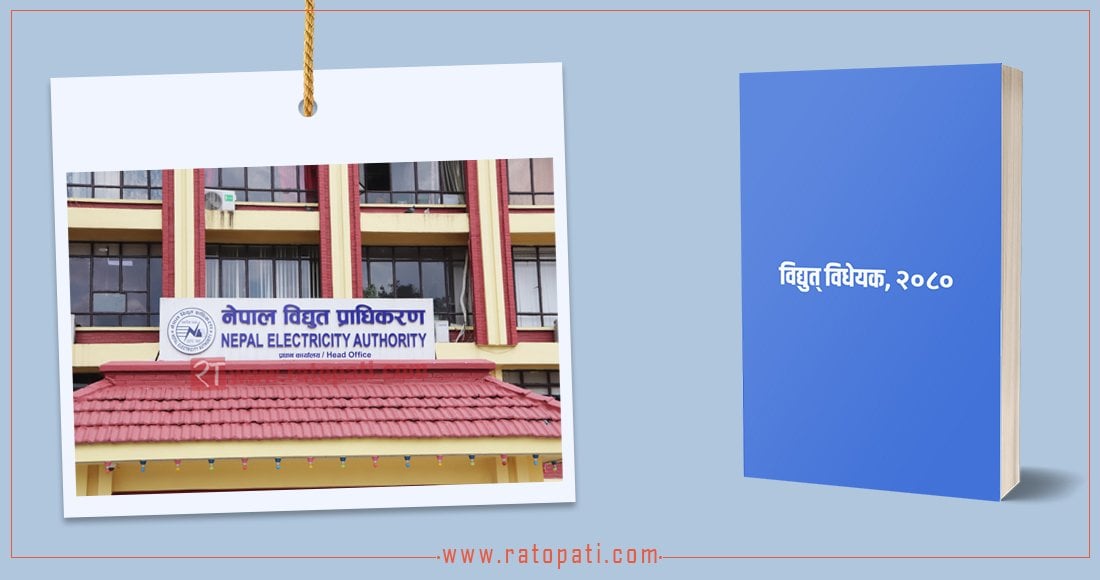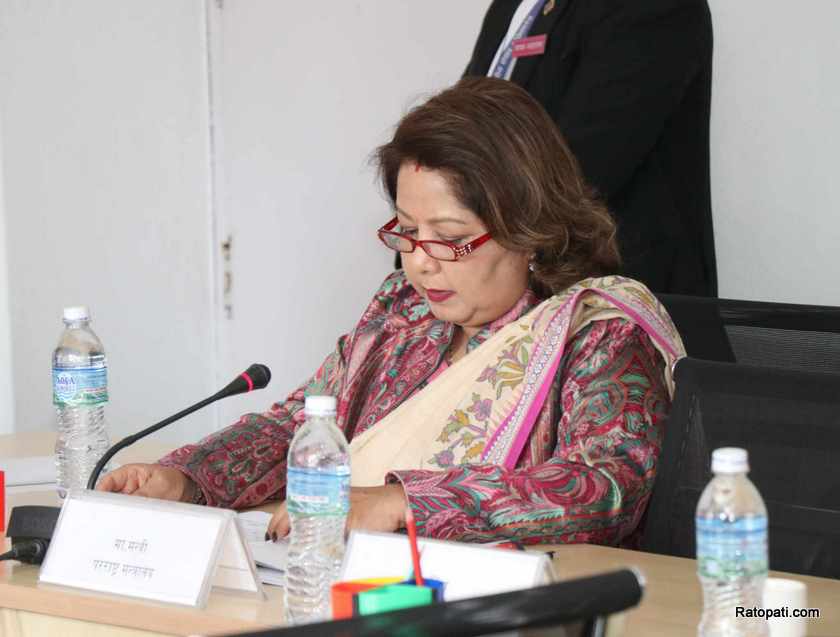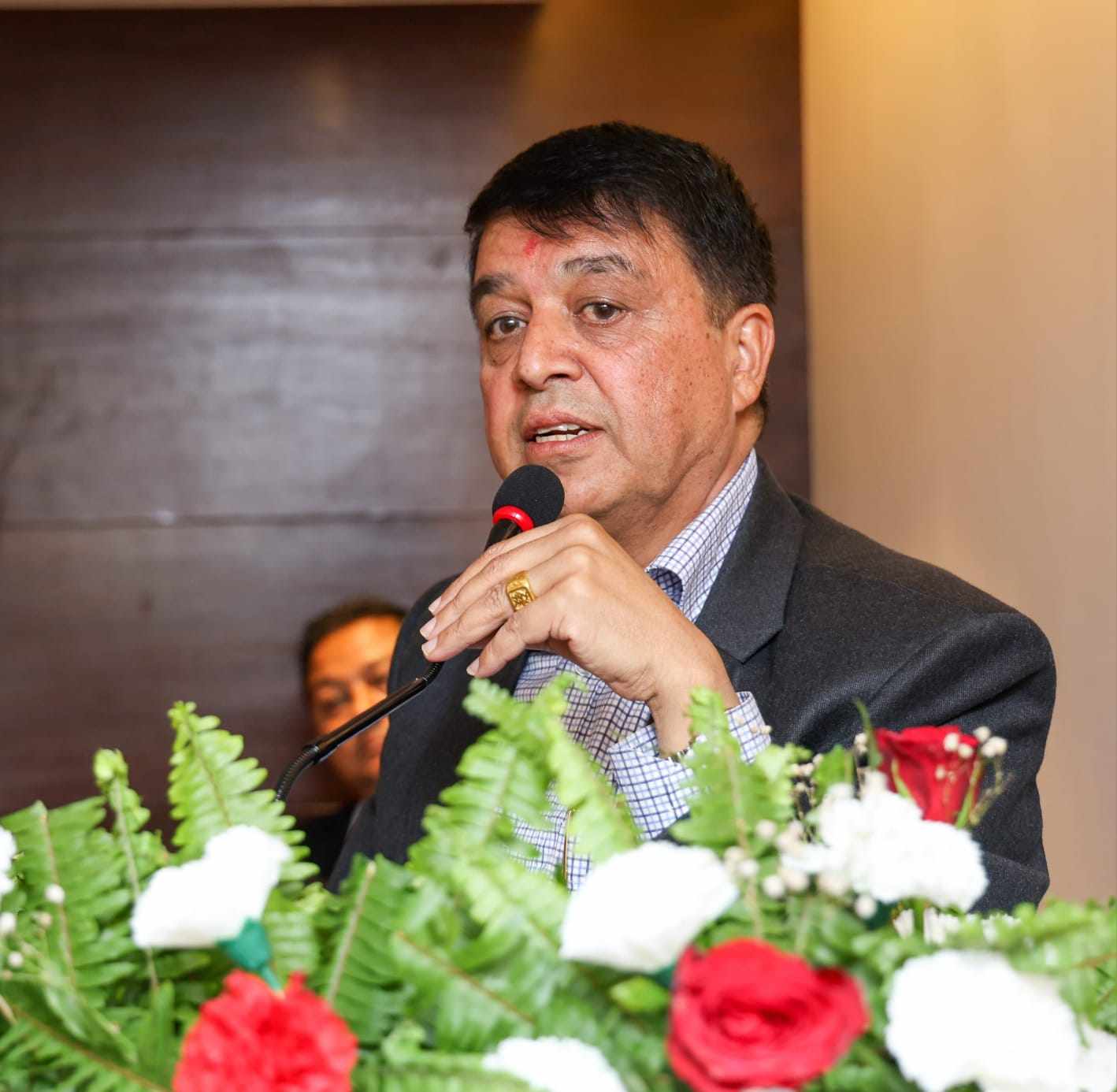Electricity Bill: Reduces NEA’s authority, discriminates against private sector

Kathmandu, August 25 — Stakeholders have raised concerns that certain provisions in the electricity bill recently registered by the government in the House of Representatives are unfavorable to the private sector. Additionally, there is suspicion that Prime Minister KP Sharma Oli, who is currently at odds with the Nepal Electricity Authority, over electricity tariff payments, may be trying to limit the latter’s powers.
The Electricity Bill, 2023, introduced in Parliament in August 2023 to replace the Electricity Act of 1992, is currently under discussion. The bill was registered by former Energy Minister Shakti Bahadur Basnet.
The bill states that it is necessary to address issues, challenges, and opportunities in the sector, develop new concepts related to project development and investment, and amend existing electricity laws in accordance with the constitution.
However, the Independent Power Producers Association, Nepal (IPPAN) views the bill as a deterrent to private sector investment in the energy sector. IPPAN Chairman Ganesh Karki, who has criticized several aspects of the bill, believes that its implementation will discourage domestic investors from participating in electricity promotion.
Karki expressed concerns about discriminatory provisions for domestic private and government investment projects. He also objected to the proposed periods for permits and power generation, stating, "We have objections to the duration of the permission letter and power generation as well."
Karki urged the government to withdraw the bill and draft a more investment-friendly law. However, the government does not appear inclined to accommodate the private sector’s concerns.
Chiranjeevi Chataut, spokesperson for the Ministry of Energy, stated that it is not feasible to withdraw the bill or amend it solely based on the Ministry's preferences.
While there are complaints that the bill discriminates against and discourages private investment, there are also concerns that the Nepal Electricity Authority, which is in dispute with the government over electricity arrears, fears its authority might be reduced.
Karki criticized the bill for discriminating against private sector investment and creating barriers for fair competition. He suggested that the duration for electricity production survey permits should be maintained at five years, and electricity production permits should last for 50 years. The bill proposes a permit duration of 45 years for reservoir projects and 40 years for other hydropower projects.
The private sector opposes these proposals and has recommended amending the duration for non-reservoir power projects from 25 years to 35 years. Karki highlighted that, while some aspects of the bill are positive, many provisions seem to diminish the role of the private sector in energy development. He warned that failure to pass the bill could deter new investors and jeopardize significant investments already made.
Indira Panta, Director of Kalinchowk Hydropower Limited, a private sector initiative, also believes the bill should be revised to better support the private sector. She argued that the bill’s restrictions discourage private investors and suggested that Parliament should return the bill to incorporate stakeholders’ feedback.
The bill also proposes restrictions on the locations for solar power projects, stating that permissions will not be granted for arable land, parks, and reserves.
Panta argued that instead of prohibiting the use of arable land, the bill should have a provision restricting power plants to be constructed where there is already irrigation facilities. She pointed out that nearly all land in Nepal is considered arable, which could hinder solar project development.
Panta warned that the government’s plan to achieve prosperity through energy development will not succeed if the bill continues to obstruct the private sector, which contributes more than 70 percent of electricity production.
Experts, while acknowledging some positive aspects of the bill, also support correcting certain provisions. Former Secretary Anup Kumar Upadhyay, an energy expert, emphasized that the law should be designed to benefit stakeholders and incorporate their perspectives. He noted, "Not all provisions should be viewed as problematic, but some aspects need correction to avoid discouraging domestic investors."
He said that the provision allowing large hydropower projects to be awarded to foreign investors without competition should be revised.
At a conference organized by IPPAN in Kathmandu on August 21, Finance Minister Bishnu Prasad Paudel promised to address everyone's concerns and incorporate their suggestions.
Regarding the bill, he stated, "The bill has been introduced to address the existing problems in the electricity sector and to make it more competitive and efficient. I understand that there are some complaints from private investors. We will address these concerns and move forward. We are committed to ensuring that investment is not discouraged."
Decentralization of NEA or reduction of power?
The bill is set to limit the powers of the Nepal Electricity Authority. It aims to break the authority's monopoly over electricity purchasing and sales and to encourage private sector participation.
The bill stipulates that the development and operation of electricity generation projects should be competitive, and it also allows for competition in the development and operation of electricity transmission, distribution, business, and customer service.
Currently, the NEA handles all aspects of electricity, with exclusive rights to buy and sell electricity from producers.
According to the bill, "If a single organization is involved in the production, transmission, and distribution of electricity, it must establish separate entities for each function within five years of the Act's commencement."
This provision will require the Nepal Electricity Authority to decentralize its operations related to electricity generation, transmission, and distribution. Additionally, the bill proposes open access for the operation of national broadcasting lines and systems.
The proposed bill seeks to make the operation and management of the national transmission grid competitive, in line with international practices.
The bill also includes provisions for private sector participation in electricity distribution. It states, "Based on the principle of non-discrimination, the responsibility of providing safe, reliable, and high-quality electricity service to all customers will lie with the organization that holds the distribution license."
This will dismantle the NEA's monopoly and grant the private sector a role in these activities. Experts believe that if the bill becomes law, the electricity sector will become more competitive, investor confidence will rise, and consumers will benefit from lower electricity costs.
The NEA has already begun decentralizing its operations to a significant extent. The National Transmission Grid Company has been established to handle transmission line work. Additionally, the authority has set up several companies for hydropower generation, such as the Electricity Generation Company, Nepal Engineering Consulting, and Nepal Power Trading. As a result, the NEA's hegemony is diminishing.
Former Secretary Upadhyay notes, "The authority has already adopted a decentralization model by establishing various companies. This bill will further reinforce that model, giving consumers more choice and increasing the likelihood of obtaining electricity at competitive rates."









Leave Comment